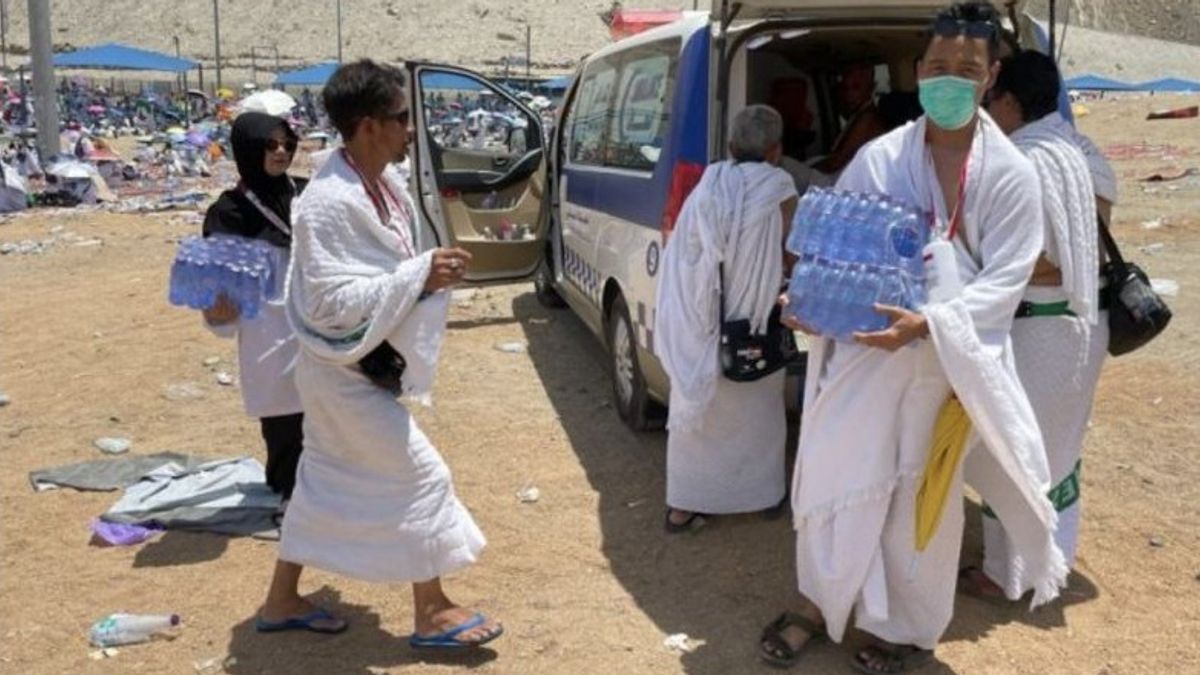JAKARTA - The Ministry of Health (Kemenkes) appealed to Indonesian pilgrims to rest at the inn after the Armuzna series. The procession took place on 13 Zulhijjah 1444 Hijri 2023.
Armuzna is known to be a series of hajj processes in Arafah, Muzdalifah, and Mina as peak activities in Saudi Arabia.
"Hajj pilgrims who have finished carrying out the Armuzna procession, we urge them to rest in hotels for one to two days so that they are tired of reducing and refilling energy," said Head of the Hajj Center of the Ministry of Health, Liliek Marhaendro Susilo, Monday, July 3, as reported by Antara.
He said the end of the Armuzna procession at the same time indicated that the operation of the Arafah Health Post (Poskes) was also completed.
The Arafah Health Post has served 163 sick hajjes and 18 people have been referred to the Saudi Arabian Hospital (RSAS). The three most diseases are 21 cases of pneumonia, 18 heat strokes, and 11 dementia.
In the operation of the Arafah Health Post, there were 12 Hajj participants who died, four of whom died at the Saudi Arabian Hospital, seven other Hajj participants died at the Arafah Health Post, and one Hajj participant died in a tent. The most causes at the Arafah Health Center were heart attacks.
At the Muzdalifah Health Post 51 health workers have been deployed at 11 posts and have treated 163 sick Hajj participants, 10 of whom were referred at the Saudi Arabian Hospital.
At Poskes Mina, 115 health workers have been alerted and have treated 429 Hajj participants, with 295 of whom were referred to the Saudi Arabian Hospital. The most treated disease is heat stroke with 100 cases.
There were 58 Hajj participants who died during the operation of the Mina Health Post, namely 23 patients died at the Saudi Arabian Hospital and four patients died at the health post, 19 patients died in the tent, and two patients died on the way.
اقرأ أيضا:
Other health services, namely the Satellite Health Post operated by the Emergency Medical Team (EMT) detected 277 diseases and 79 emergency responses. The most cases are heat stroke.
Liliek said that the implementation of Hajj health in Armuzna had been running smoothly with several obstacles in service being overcome.
"We will also evaluate this year's implementation so that it can serve as a lesson to improve the quality of the implementation of hajj health next year," he said.
He explained that the Hajj procession in Armuzna drained the energy of the Hajj participants. Therefore, his staff is ready to anticipate the health condition after the Armuzna procession.
He also reminded the Hajj participants to often drink by not waiting for thirst first.
If you want to do activities outside the hotel, he said, always wear personal protective equipment, such as masks, sunglasses, hats, and umbrellas.
"It is important for pilgrims to continue to eat food on time and once a day to consume oralites," said Liliek.
The English, Chinese, Japanese, Arabic, and French versions are automatically generated by the AI. So there may still be inaccuracies in translating, please always see Indonesian as our main language. (system supported by DigitalSiber.id)
















